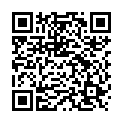|
|
|
| Module code: KI400 |
|
|
2V+2P (4 hours per week) |
|
4 |
| Semester: 4 |
| Mandatory course: yes |
Language of instruction:
German |
Assessment:
Ninety-minute written exam
[updated 20.03.2007]
|
KI400 (P222-0042) Computer Science and Communication Systems, Bachelor, ASPO 01.10.2014
, semester 4, mandatory course
|
60 class hours (= 45 clock hours) over a 15-week period.
The total student study time is 120 hours (equivalent to 4 ECTS credits).
There are therefore 75 hours available for class preparation and follow-up work and exam preparation.
|
Recommended prerequisites (modules):
KI300 Software Engineering 1
[updated 18.04.2016]
|
Recommended as prerequisite for:
KI500 Internet Technologies
KI581 Internet Development with Java 1
KI593 Introduction to Parallel Programming with CUDA
KI598 Game Design and Development
KI599 Mobile Application Development (Android)
KI619 Enterprise Java Beans
KI682
[updated 20.07.2016]
|
Module coordinator:
Prof. Dr. Martina Lehser |
Lecturer:
Prof. Dr. Martina Lehser
Dipl.-Ing. Michael Sauer
[updated 09.05.2016]
|
Lab:
Communication Systems Lab (5204)
|
Learning outcomes:
This course introduces students to object-oriented programming in Java. After introducing the basic elements of the language, the course then focuses on object-oriented programming and its applications. Another key topic covered in this module is programming interactive graphical user interfaces. The theoretical knowledge acquired will be applied in practical exercises.
[updated 13.03.2007]
|
Module content:
1. Fundamentals
2. Program structure
3. Language elements
4. References
5. Inheritance
6. Exception handling
7. Input/Output
8. Interfaces
9. Dynamic data
10. Graphical user interfaces
[updated 13.03.2007]
|
Recommended or required reading:
J. Goll et al.: Java als erste Programmiersprache, Teubner 2001
H. Mössenböck: Sprechen Sie Java, dpunkt 2005
J. Nowak: Fortgeschrittene Programmierung mit Java 5, dpunkt 2005
C. Ullenboom: Java ist auch eine Insel, Galileo 2005
C. Horstmann, G. Cornell: Das core Java 5-Paket, Grundlagen und Expertenwissen, Addison-Wesley 2006
[updated 13.03.2007]
|
Module offered in:
SS 2018,
SS 2017,
SS 2016,
SS 2015,
SS 2014,
...
|


